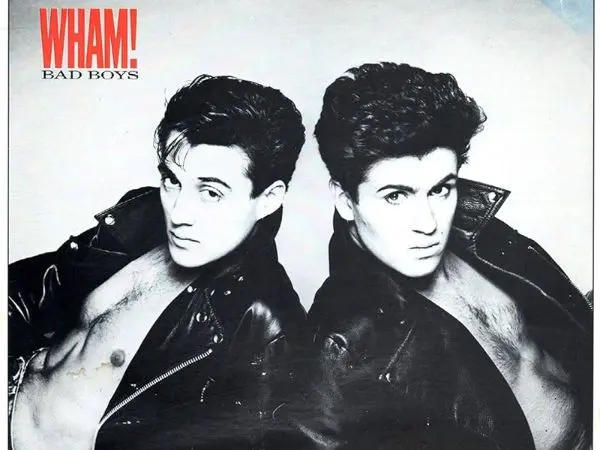Getting ready for a study holiday abroad? Improve your English before your trip with music from the best British boybands!
Whether you’re travelling for the first time or you’ve already had a few experiences under your belt, one thing always stays the same: the more comfortable you feel with the language, the more confident and relaxed you’ll be once you arrive. And if your destination is the UK, there’s a fun, unexpected way to brush up on your English before your trip even begins.
British boybands.
Yes, really. Listening to boybands can actually help you build your vocabulary, improve your pronunciation, and even give you insight into everyday British culture. It’s not just entertaining—it’s also a great way to learn without even feeling like you’re studying.
Why listening to music works when you’re learning a language
You know that feeling when a song gets stuck in your head? That’s exactly why music is such a powerful language tool. When you listen to songs you enjoy, your brain is more engaged. You remember lyrics more easily than textbook examples, and you absorb grammar and vocabulary without even realising it.
Here’s why boyband music is especially useful:
- The lyrics are relatable and simple. You won’t need a dictionary every two seconds, and most songs use conversational English.
- The pronunciation is clear. Most pop songs are recorded with very polished vocals, which means you’ll hear every word clearly.
- There’s emotional connection. Themes like love, friendship, heartbreak, and hope help you connect with the language in a more personal way.
- The rhythm helps you memorise. Repetition and melody are natural memory tools. You’ll find yourself learning entire phrases without trying.
Plus, boyband songs often reflect what’s happening in popular culture, giving you a better feel for the country you’re about to visit.
The British boybands you need to know
One Direction: The global phenomenon
When it comes to British boybands, One Direction is usually the first name people mention. Formed during the 2010 season of The X Factor, this five-piece band quickly went from reality TV contestants to one of the biggest musical acts in the world.
Why they’re great for learning:
One Direction’s lyrics are simple, heartfelt, and packed with everyday phrases. Songs like What Makes You Beautiful, Night Changes and Story of My Life are perfect examples of clear pronunciation, regular verb usage, and common expressions.

They also tend to use questions in their lyrics, which is great for picking up how English questions are structured. For example: “Do you know what you’ve done?” or “Aren’t you tired of being alone?”
Take That: A 90s classic still going strong
Before One Direction, there was Take That. This band became famous in the 1990s and still releases music today, making them one of the UK’s most enduring pop acts. Their sound is emotional and melodic, often leaning more towards pop ballads than high-energy pop.

Why they’re great for learning:
Take That songs like Back for Good and Patience are slower and easier to follow, which is ideal for learners who want to work on listening skills. The lyrics include a mix of tenses and emotional vocabulary, giving you lots to pick up on.
Their music also shows how tone and emotion influence the way English is spoken—something that can be hard to get from textbooks alone.
The Beatles: timeless and cultural
No list of British bands is complete without The Beatles. While not a boyband in the modern sense, they were the original group of young men making music that changed the world. Their influence on both language and culture is enormous.

Why they’re great for learning:
The Beatles used simple, poetic English. Their lyrics often tell stories in a very clear, easy-to-understand way. Songs like Let It Be, Help! and Yesterday are packed with useful verbs, phrases, and idiomatic expressions.
Listening to The Beatles also gives you a snapshot of historical British culture. You start to understand how music shaped everyday language, and how English has evolved.
The Wanted: fun and modern dance-pop
If you prefer a more current sound with a bit of dance-pop energy, The Wanted is a solid pick. Their music is upbeat and modern, with catchy hooks and singable choruses.

Why they’re great for learning:
Songs like Glad You Came and Chasing the Sun are fun to listen to and packed with phrasal verbs and everyday expressions. Their lyrics are modern and relevant, reflecting how people actually speak today.
This is a great way to expose yourself to casual, spoken English in a fun context. Plus, their music videos often include visual cues that help you understand the meaning.
Blue: smooth and stylish
Blue made their mark in the early 2000s with a smoother, R&B-influenced pop sound. Their songs often talk about relationships and emotions, with strong choruses and clean production.
Why they’re great for learning:
Their lyrics are emotional and clear. Songs like One Love and All Rise repeat key vocabulary and phrases, helping you reinforce your learning. The rhythm and repetition make their songs especially good for memorisation.
Wham!: iconic 80s pop
Wham!, made up of George Michael and Andrew Ridgeley, was one of the most successful pop duos of the 1980s. Their music still plays everywhere today, especially around Christmas.

Why they’re great for learning:
Wake Me Up Before You Go-Go and Last Christmas are more than just catchy hits—they’re goldmines of clear pronunciation, rhythmic repetition, and everyday vocabulary. The upbeat tempo makes them fun to sing along to, which is a brilliant way to practise your English out loud.
How to make music a part of your English learning routine
Once you’ve found the boybands and songs you like, it’s time to turn listening into learning. Here are a few easy techniques you can use every day:
1. Listen and read the lyrics at the same time
Search for the lyrics and follow along as the song plays. This helps you connect sounds to words, and you’ll begin to recognise patterns in grammar and vocabulary.
Apps like Spotify and websites like Genius or Lyricstraining make it easy to see the lyrics while you listen.
2. Sing along—loudly!
Don’t worry about being off-key. Singing out loud is one of the best ways to work on your pronunciation and fluency. You’ll improve your accent and rhythm without needing to think too hard about it.
You’ll also start to remember phrases naturally, just from singing them over and over again.
3. Break down the lyrics
Choose a song you like and translate it line by line. Try to guess what the lyrics mean first, then look them up. Take notes on new expressions or slang.
Doing this regularly will build your vocabulary and give you a better understanding of how English works in real life.

4. Create playlists around specific themes
Group songs by topics like love, friendship, growing up, or even break-ups. This helps you focus on vocabulary that relates to specific real-life situations.
It’s also a fun way to review certain grammar points. For example, love songs often use the present simple or future tense, while sad songs might be packed with past tenses.
5. Use tech to your advantage
When you come across a word or phrase you don’t understand, look it up immediately. Use online dictionaries or apps like WordReference or Linguee. You can also keep a digital vocabulary notebook where you jot down useful phrases.
Over time, you’ll build your own bank of real-life English expressions—not just textbook ones.
6. Watch music videos and interviews
Don’t stop at the songs. Watch music videos to understand body language and tone. Look up interviews with your favourite band members to hear how they speak naturally.
This is where you’ll hear informal English, jokes, and slang that often don’t appear in songs. It’s also great for training your ear to different British accents.
Final thoughts: Listening to music by British boybands is a great way to boost your confidence before you travel
One of the best things you can do before your study holiday is build confidence in your English. You don’t need to be perfect—just comfortable enough to understand and be understood.
Music is the perfect bridge between studying and real conversation. You’re learning vocabulary, pronunciation, listening skills, and culture all at once. And you’re doing it in a way that keeps you motivated.
So plug in your headphones, press play on that playlist, and start singing your way to better English. By the time your plane takes off, you’ll already be more prepared than you think!





